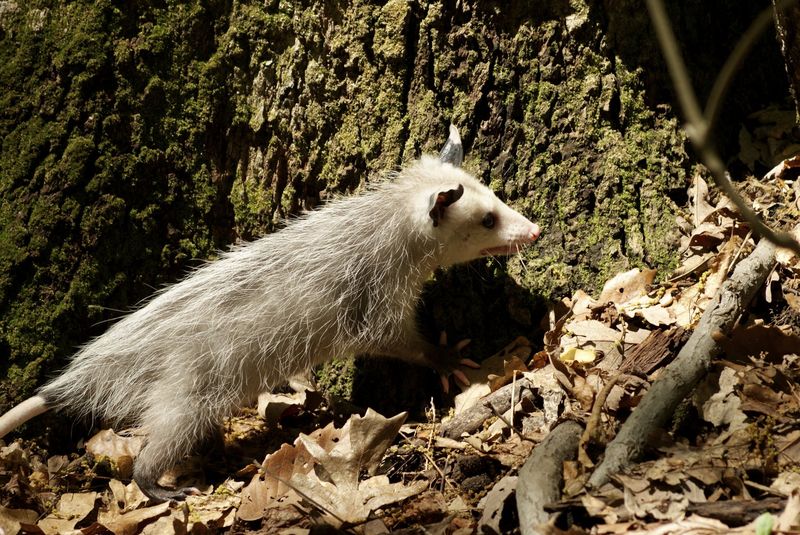Possums may look out of place in a Nebraska yard, but removing them can be trickier than it seems. These nighttime wanderers play by their own rules, and a hasty approach can stir up more trouble than expected.
Some homeowners want them ouot, not realizing possums often help more than they harm by clearing out pests and cleaning up scraps. Still, when one lingers too close for comfort, the situation calls for careful steps. Understanding the rules, the risks, and the habits of these quiet visitors can save a lot of headaches before any action is taken.
1. Possums Are Nature’s Pest Controllers
Your yard benefits more than you realize when possums stick around. A single possum can eat up to 5,000 ticks in one season, protecting your family and pets from Lyme disease.
They also munch on cockroaches, rats, mice, and other pests that cause real problems. Instead of being a nuisance, possums work like free pest control services every night.
Removing them might actually invite bigger pest issues into your space.
2. Nebraska Law Protects These Creatures
Did you know? Possums are considered wildlife under Nebraska state regulations, which means you cannot just trap and relocate them without proper permits. Breaking these rules could result in fines or legal trouble.
Only licensed wildlife control professionals have the authority to handle possum removal legally. Homeowners who take matters into their own hands risk violating state wildlife protection laws.
Always check with Nebraska Game and Parks Commission before taking action.
3. They Rarely Carry Rabies
Many people fear possums because they assume these animals spread rabies and other dangerous diseases. Actually, possums have lower body temperatures than most mammals, making it nearly impossible for the rabies virus to survive in their systems.
Their risk of carrying rabies is extremely low compared to raccoons, skunks, or bats. While they can carry other parasites, possums are generally safer than people think.
Fear should not be your main reason for removal.
4. Possums Only Stay Temporarily
Unlike raccoons that set up permanent homes, possums are nomadic creatures who rarely stay in one spot for long. Most possums move on within two to three days after finding food or shelter.
They do not build nests or establish territories like other wildlife. Patience often solves the problem naturally without any intervention needed from you.
Waiting a few days might be easier than going through removal processes and expenses.
5. Removal Can Create Bigger Problems
Taking possums out of your yard creates an empty ecological niche that other animals will quickly fill. Rats, mice, and more aggressive wildlife like raccoons often move into spaces where possums once lived.
Possums are non-aggressive and do not damage property like these other creatures do. You might trade a harmless neighbor for a destructive one.
Sometimes the solution becomes worse than the original situation you were trying to fix.
6. Simple Deterrents Work Better Than Removal
Instead of removing possums entirely, you can encourage them to move along naturally using simple methods. Motion-activated lights, removing food sources like pet food or fallen fruit, and securing garbage cans usually do the trick.
Trimming overgrown bushes and sealing entry points under decks or sheds also helps. These strategies cost less and create long-term solutions without harming wildlife.
Prevention beats removal every single time for Nebraska homeowners.
7. Possums Help Keep Your Garden Healthy
Gardeners often do not realize that possums eat snails, slugs, and beetles that destroy plants and vegetables. They also consume overripe fruit that attracts wasps and other stinging insects to your property.
Unlike deer or rabbits, possums rarely damage healthy plants or crops. Their nighttime feeding actually supports a healthier garden ecosystem.
Keeping them around might improve your harvest rather than hurt it, making removal unnecessary.








